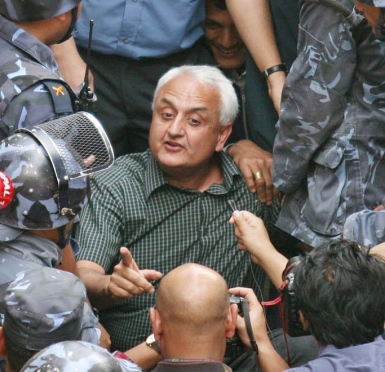
Top row (L-R): Sima Samar, Kanak Mani Dixit, Hamida Hossain. Bottom row (L-R): Uma Chakravarti, Shahidul Alam, Pamela Philipose, Beena Sarwar. Collage: TheWire.In
Thanks to friends who initiated this statement in solidarity with the artists, thinkers and people of Sri Lanka, that I have signed along with over 250 other activists, academics and journalists from across South Asia. Please feel free to endorse and share. Signatories include human rights activists from Afghanistan and Bangladesh, journalists from Nepal, Pakistan and India, and historians and feminists from India and Pakistan, among others who have been at the forefront of facing similar realities in their respective nation-states for decades. Full text below, updated from the version published earlier in TheWire.in.
May 2, 2019: Continue reading
Filed under: 'War on terror', enforced disappearances, Freedom of expression, Human rights, Violence in the name of religion | Tagged: Afghanistan, fundamental rights, India, Indonesia, Nepal, Pakistan, Southasia, Sri Lanka, Sri Lanka bombings | Leave a comment »













